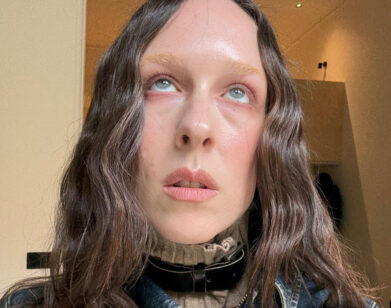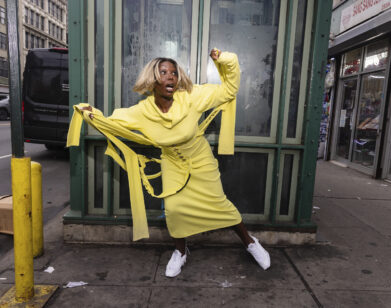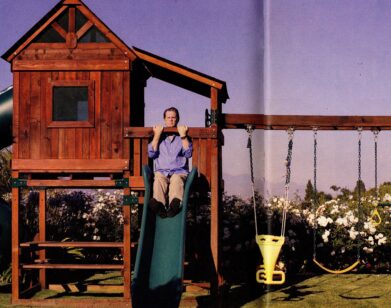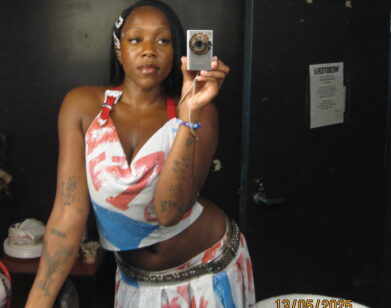Icons
Chuck D and B-Real Reflect on Three Decades of Fame, Fans, and Friendship
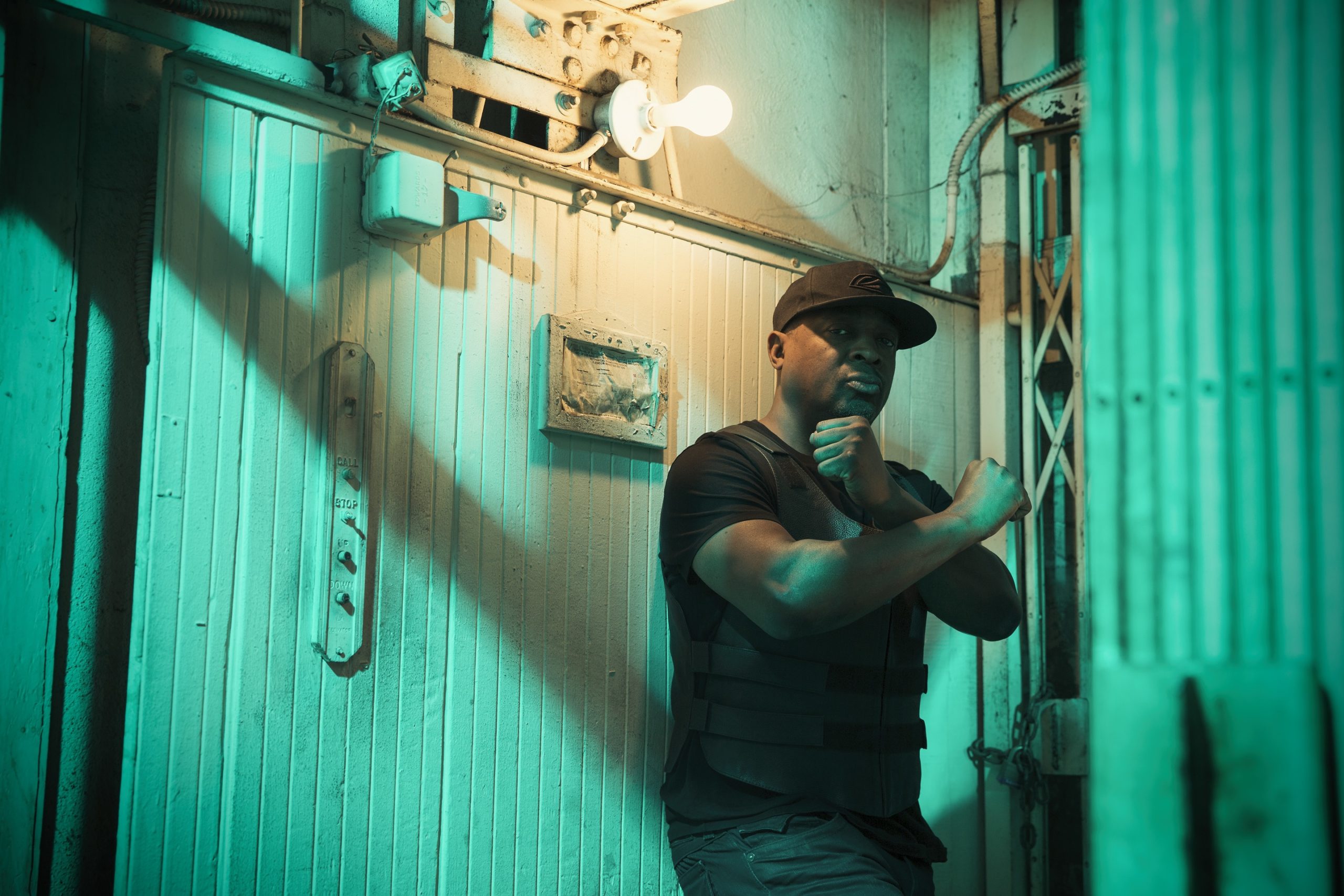
When considering the great emcees throughout history, there may not be two as close as Public Enemy’s Chuck D and Cypress Hill’s B-Real. But on the mic, the two couldn’t sound more different. Chuck D is known for his deep, echoing bass, while B-Real raps in a high-pitched, nasal tone. But both voices are powerful and both have subsisted through decades of shifting fads in hip-hop. In 2016, Chuck D and B-Real, along with Rage Against the Machine guitarist Tom Morello, put together the supergroup, Prophets of Rage, which spread ideas of revolt and empowerment through song, before splitting up in 2019. More recently, Chuck and B collaborated on the new Public Enemy track, “GRID,” from the group’s 2020 LP, What You Gonna Do when the Grid Goes Down? We caught up with the legendary emcees to talk about what it’s been like to work together, their generation of rappers versus the current one, their celebrity status, and more.
———
JACOB UITTI: Public Enemy and Cypress Hill are legends in American music. What do you think hip-hop and music in general would be like if each other’s group never existed?
B-REAL: For me, if Public Enemy doesn’t exist, Cypress Hill definitely doesn’t exist, because we were directly influenced and inspired by them. From the production to the way we flipped our vocal tones back and forth. That very much revolved around what P.E. had done. I don’t think we would have had a clear path on who we were going to be if they had not come out. And that’s the damndest truth right there for sure.
CHUCK D: On my end, freedom, liberation, expansion of ideas. The fact that B-Real and Sen [Dog] are bi-lingual, they were able to go into territories no one ever fathomed possible with a tone, a spirit and a culture of being free and being able to be organically in-tune, and a smoke culture. Just the culture from the west. There’s no other group in operation that seriously expanded what the west really is. The west of the United States is basically a taken-over territory. Like all of the map. Cypress Hill did touched on a sentiment that was never expressed in hip-hop and rap music to the fullest extent. They recognized it. But it’s one thing to recognize it and another thing to act upon it. They tied the whole Americas together like [Roberto] Clemente did with baseball.
UITTI: Once you recognized that in one another, how did a collaborative relationship grow between you two?
B-REAL: I met Chuck way the fuck back in 1990, or something like that. There was no Cypress Hill yet, we were still in demo mode. We’d seen Chuck at a club called The Penthouse Lounge. It was a hip-hop club and he was chilling there. He didn’t have his hat on, so that was very low-key. But my crew recognized him. We were like, “Oh shit, it’s Chuck D!” Being a child of Los Angeles, some of us just aren’t comfortable with approaching any celebrities at any point at any time because we know some can be assholes, especially here on the west coast, people were total assholes in the entertainment industry. But we took a chance because this was Chuck D. We came on the low-key, trying not to blow up his spot, like, “Hey, Chuck, we just wanted to say we’re big fans. We love what you do. We rock your shit in our cars everyday and one day we hope to be doing what you do, man. Much love.” And it was like, “Hey man, keep doing what you’re doing and one day you might be here with us and thank you for that.” We had never previously had an experience like that with any celebrity in California. Everybody was always like “Fuck off! Get the fuck outta my face.” I looked at my homies that day, like, “If we ever get to that point, I’m going to treat my fans like that.” Later, we hooked up on the Smokin Grooves Tour, and we became friends there. Eventually, years would pass and we’d always talked about doing something big, and then Tom Morello gave us a call.
CHUCK D: I was amazed at Smokin Grooves. Blown away. I would elbow my guys and say, “See what they’re doing? This is supposed to be how it’s done.” I was energized by the spirit of Cypress Hill the entire tour. One time at one of the Cypress Hill booths, B-Real, who I call The Shaman, gave a woman and a man—the woman was pregnant and her husband wanted B-Real to give blessings for the baby. The woman’s belly was out and B put his hands over it and they said a prayer and I was. I was stunned. What made it more stunning was when we were in Prophets of Rage, we went back to that city, and the child that B had given the blessing to, now he’s a grown kid. That’s the most amazing thing that I’ve experienced ever in the history of the music business. B-Real gives the prayer, I’m sitting next to him. The woman and the husband are, like, looking at it like a blessing. Then they return to a Rage show, like, 18 years alter and the kid has grown and come with his mom and dad to check out the show. What could top that?
B-REAL: People asked for that blessing all through that time because I’m a priest in a religion called Ifá and so it wasn’t uncommon for people to come up and ask for a blessing. I had never gotten that one before, a pregnant woman coming up and saying, “Hey, can you pray over our baby?” I was blown away by that, too. But more than anything, they’re bringing the kid over 18-years later and the family is still together. Yhat was awesome.
UITTI: Chuck, do you consider yourself a political artist?
CHUCK D: I consider myself an artist. Life is political. When you understand the streets, you’re automatically political. When you understand the streets, then you know all the layers, and that makes you automatically political.
UITTI: In what ways do you think you’d try to break into music today if you were young? How would you try and make a mark?
B-REAL: For younger artists, there are a whole lot of interesting avenues and platforms to launch yourself without the so-called major record label. So you see a lot more independent artists coming up these days navigating their own path the way they want to without the big bank, as some of us have come to know the majors as. It’s a Big Bank with a fucked up interest rate. So, a lot of these younger artists are tuned into knowing that they can get something off without them. If they build the right team and build the right momentum, they can pop off on the right platform. And you see it more often. In terms of breaking an artist traditionally, it was in the form of radio. You had to pop your record off there. Now you don’t have to rely on radio. That traditional route, it was a hard climb. I think it’s a little bit easier now to break yourself if the record companies ain’t knocking on your door.
CHUCK D: I’d also like to add that sometimes people are like, “Man, I wish I was back then in your day!” And I look at them like, “What was the guarantee that you woulda been put on back then?” It was way, way, way, way tougher. And if you didn’t come from New York or Los Angeles, you weren’t getting put on unless you traveled to those cities. People are always sending me music, I have a rap station and we’ve broken—exposed, I should say—at least 15,000 artists over the last decade. I tell people, “Don’t get into the numbers game. Get into the knowledge game.” Knowing what you can create in sight, sound, story, and develop your style and your name and keep chipping away at the artistry of it. If you get caught up in a numbers game, that’s a whole other thing. You can’t get to 10 unless you pass one. You can’t get to 100 unless you pass 10. Count every fan like a solid one. And one by one by one, start accumulating your tribe or your base or your fanaticism.
UITTI: Given those career-minded ideas of hard work and given that you all have been able to achieve, what does the idea of celebrity mean to you? It’s a term that can often seem fraught, but how do you orient yourself to it?
CHUCK D: It means you’re celebrated for your craft and what you do and you have all eyes on you or some eyes on you. I don’t look at it as being a bad thing. It means that you’re a prism. And if you’re a prism, the light should bounce off you and it should bounce off to thousands of other situations as a spectrum, and that’s how you can make a situation come up, how you can make a situation respected. Everybody doesn’t have to be on the same page, you don’t even have to have the same opinions or like each other, but a celebrity should be able to say, “You know what? I was bestowed with the light. It shines off of me and it goes out there. You all come up, too!” You’re not going to be here forever in the physical state. Your art is going to be something that will last the test of time, whether somebody checks it out or whether somebody doesn’t. That’s going to be your statement. So, if you are able to spare your light and illuminate your surroundings, then I think that is probably the best use of the word, to me.
B-REAL: I echo what Chuck said. A celebrity is a person with the light and the opportunity to expand their own light in others. It’s someone in a notable position that is celebrated, obviously. But there are new definitions of celebrity now. You have people in the entertainment world that have been the traditional form of celebrity, whether it’s a musician or an actress. But now you have reality people that are celebrities. You have Instagram people that are considered celebrities, it means something totally different in today’s definition of it. But overall, it’s a person with light. And a platform, most importantly. Whether they’ve created one or not, they have the ability to express a thought, express a feeling, whether it’s political or it’s something to provoke an emotion. It’s a strong title to have. Some abuse it, and some use it to make better things happen in the world.
UITTI: What do you love most about music?
B-REAL: For me, it’s the art form. The expressive nature of it. You can say what you want, whether it’s fucking gibberish like you hear a lot today, or whether it’s something meaningful and substantial. I have this ongoing passion with it. It’s like sports for me. I think Chuck can relate to this. We come from a competitive background. Hip-hop is very much like that. You wanted to be as good if not better as the other team. That’s one of the things that has carried us on: the love and the desire to get that championship trophy every fucking time we come out.
CHUCK D: That’s also why we gelled so easily, because we understand the competition, we understand the comradery, we understand the passion for it. What I’d say is, be great. At least strive to be great at what you’re doing. If you’re a mumble emcee, make all the other mumble emcees look at you like, “Damn, I can’t do that!”
At the end of the day, no matter who or what it is, you’ve got to leave your audience awestruck. That’s how we spelled audience. “AWE.” We didn’t start off “AUD.” The goal is to leave you in awe and maybe even discourage you to the point of, “I thought I wanted to do this shit but I’ll quit or go back to the drawing board.” That’s what we came up in. The goal was to send your ass home.
B-REAL: That shit carried over into Prophets of Rage. Because you had three groups that had that same head-chopper mentality. We wanted to be the best thing you saw that night. And we’re going to make sure that we were. Some nights, one or two, don’t work out. But the 98 other nights, it’s some shit! Because you have guys up there with that same competitive mentality, so we are going to make it hard for anyone coming after us. When we did the Prophets of Rage, we brought all that shit into it. That was the whole thing: chop their fucking heads off. As friendly as we are with everybody, when we get on stage, we come with that sword sharp as fuck.



